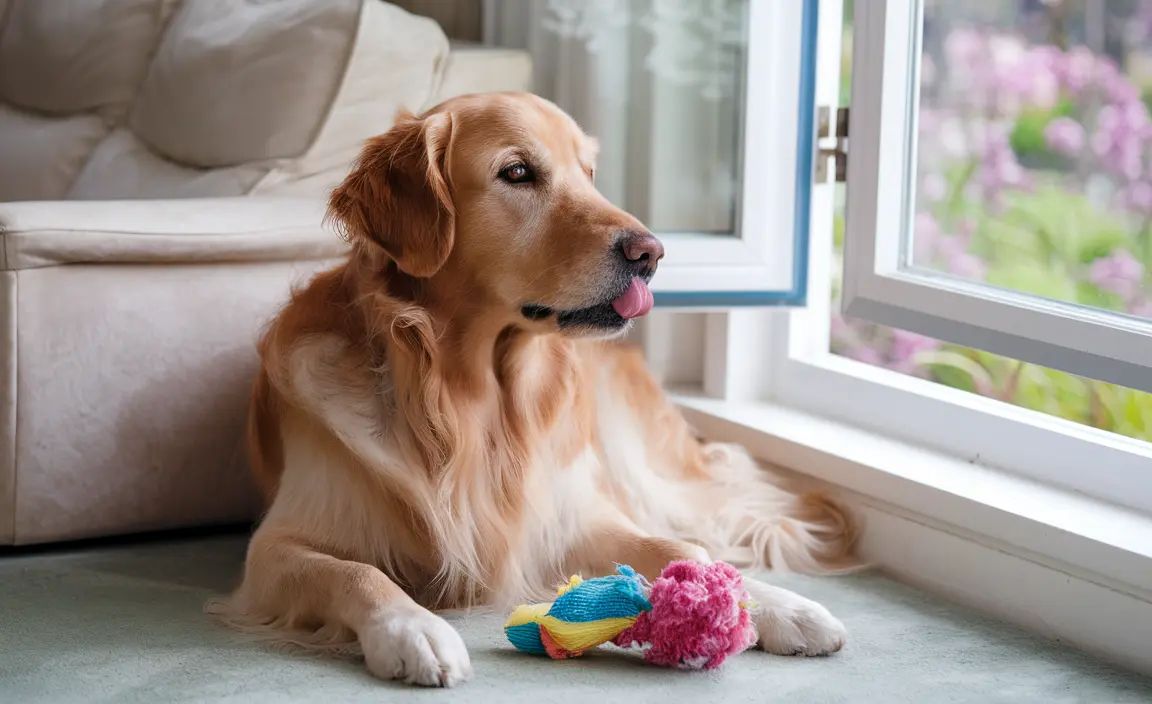Dog owners often find themselves puzzled by their furry friend's tendency to lick everything in sight. From furniture and floors to their own paws and human companions, excessive licking can be both intriguing and concerning. Understanding the underlying reasons behind this behavior is crucial for maintaining your dog's health and happiness.
This comprehensive guide will explore the various motivations behind why dogs lick everything, helping you distinguish between normal behavior and potential warning signs that might require professional attention.
Natural Instincts and Communication Behind Dog Licking
Licking is a fundamental behavior deeply rooted in canine biology and social communication. Dogs use this action for multiple purposes, ranging from grooming and bonding to expressing emotions and gathering information about their environment.
Grooming and Self-Comfort
In the wild, dogs and their ancestors use licking as a primary grooming mechanism. This instinctive behavior helps them clean themselves, regulate body temperature, and provide self-soothing. Puppies learn this behavior from their mothers, who frequently lick them to clean and comfort them during early developmental stages.
Social Bonding and Affection
When your dog licks you or other animals, they're often demonstrating affection and strengthening social bonds. This behavior mimics the way wolf packs and wild canines interact, using physical contact to establish and maintain relationships. Licking can be a dog's way of showing love, respect, and submission.
Psychological Triggers for Excessive Licking
Anxiety and Emotional Stress
Dogs may increase their licking when experiencing anxiety or emotional distress. This repetitive behavior can serve as a self-soothing mechanism, similar to how humans might bite nails or twirl hair when nervous. Common triggers include:
- Separation anxiety
- Changes in household routine
- Introduction of new pets or family members
- Loud noises or unfamiliar environments
Seeking Attention and Interaction
Some dogs quickly learn that licking generates a response from their owners. Whether you react with gentle petting, verbal commands, or even mild frustration, the dog perceives this as successful engagement. This learned behavior can become a go-to strategy for gaining attention.
Medical Reasons Behind Persistent Licking
Potential Health Indicators
Excessive licking isn't always benign. It can signify underlying medical conditions that require veterinary investigation. Potential health issues include:
- Skin allergies
- Parasitic infections
- Gastrointestinal discomfort
- Hormonal imbalances
- Neurological disorders
Signs of Medical Concern
Be alert for these warning signs that might indicate a health problem:
- Hair loss around licked areas
- Skin redness or irritation
- Development of sores or hot spots
- Changes in appetite or behavior
- Persistent licking of specific body parts
When to Seek Professional Help
If your dog's licking becomes compulsive or interferes with daily activities, it's time to consult a veterinarian. Professional assessment can help determine whether the behavior stems from medical issues, psychological factors, or a combination of both.
Frequently Asked Questions
Why does my dog lick everything, including people and objects?
Dogs lick to communicate, gather sensory information, show affection, and self-soothe. The specific motivation can vary based on individual personality and environmental factors.
When is licking normal dog behavior, and when should I be concerned?
Occasional licking is normal. However, if licking becomes excessive, causes skin damage, or is accompanied by other behavioral changes, it warrants professional evaluation.
Can excessive licking in dogs indicate medical problems like allergies or gastrointestinal issues?
Yes, persistent licking can be a symptom of various health conditions, including allergies, skin infections, and gastrointestinal disorders.
How can I tell if my dog's licking is due to anxiety, boredom, or seeking attention?
Observe the context of the licking. Anxiety-related licking often occurs during stressful situations, while boredom-induced licking might happen when the dog lacks mental stimulation.
What steps should I take if my dog's licking causes skin irritation or leads to sores?
Consult a veterinarian to rule out medical issues, implement behavior modification techniques, and potentially use deterrent sprays or protective clothing to prevent further skin damage.






